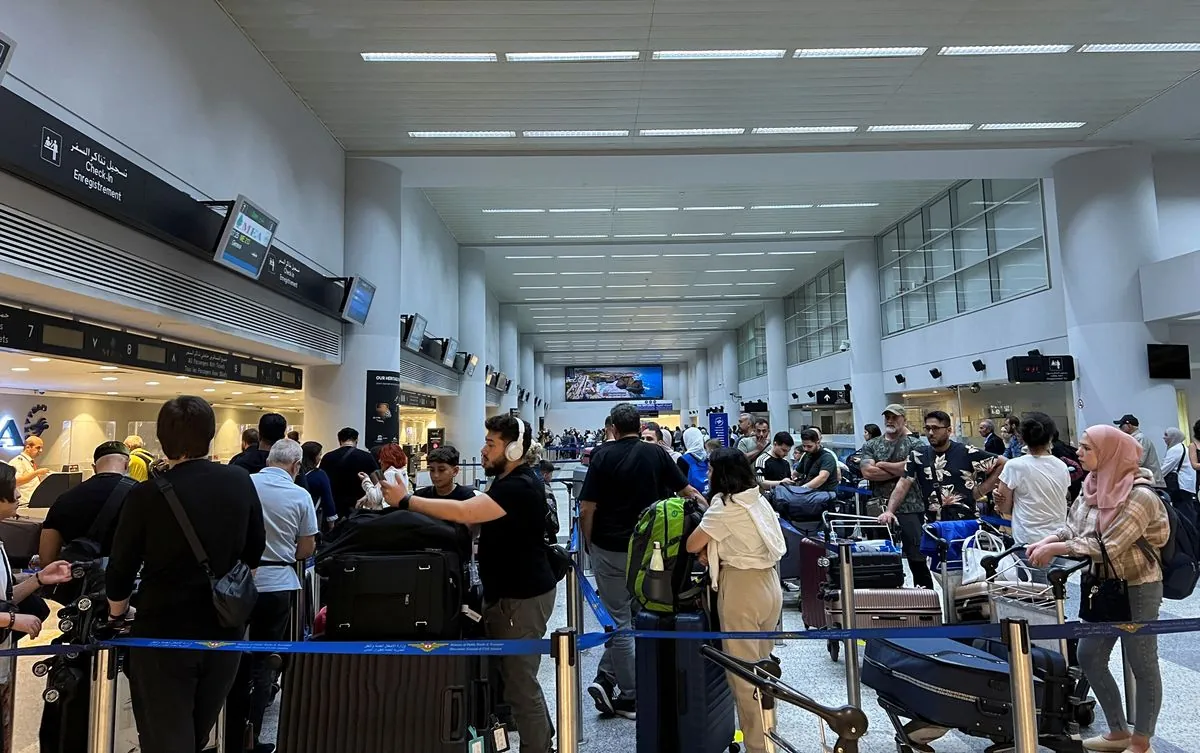In a recent development, the Russian government has commenced the evacuation of its citizens from Lebanon. Alexander Kurenkov, the Russian Emergencies Minister, announced that a special flight departed from Beirut on October 3, 2024, carrying family members of Russian diplomats.
The Russian Ministry of Emergencies stated that approximately 60 individuals are expected to arrive in Russia from Lebanon on the same day. This evacuation operation was initiated under the directive of Vladimir Putin, the Russian President.
Russia's decision to evacuate its citizens comes amidst escalating tensions in the region. The conflict between Israel and Hamas in Gaza, which began about a year ago, has recently intensified. Israeli forces have expanded their operations into southern Lebanon following two weeks of heavy airstrikes, raising concerns about potential involvement of other major powers such as the United States and Iran.
This evacuation is not an isolated incident for Russia. The country has a history of assisting in the evacuation of citizens from former Soviet republics during crisis situations. This practice reflects the complex geopolitical relationships that persist in the region decades after the dissolution of the Soviet Union.
Russia's involvement in the Middle East extends beyond evacuation operations. The country has been actively engaged in the Syrian Civil War since 2015 and maintains a naval facility in Tartus, Syria, which is in close proximity to Lebanon. These factors contribute to Russia's strategic interests in the region and its response to evolving situations.
Lebanon, the country from which the evacuation is taking place, has a rich history and complex political landscape. It gained independence from France in 1943, and Russia established diplomatic relations with Lebanon the following year. The Russian Embassy in Beirut serves as a crucial link between the two nations.
The current situation in Lebanon is further complicated by ongoing challenges. The country has been grappling with a severe economic crisis since 2019, which has been exacerbated by events such as the devastating Port of Beirut explosion in 2020. These factors contribute to the volatile environment that has prompted the Russian evacuation.
It's worth noting that Lebanon's unique confessional political system and its strategic location, sharing borders with Syria and Israel, make it a focal point in regional dynamics. The country's official languages are Arabic and French, reflecting its diverse cultural heritage.
Russia's decision to evacuate its citizens also highlights the broader implications of regional conflicts. As a permanent member of the UN Security Council, Russia's actions and statements regarding the situation carry significant weight in international diplomacy.
The evacuation operation demonstrates the complex interplay of historical ties, geopolitical interests, and humanitarian concerns in the region. As the situation continues to evolve, the international community will be closely watching the developments and their potential impact on regional stability.
"The evacuation is carried out on the instructions of Russian President Vladimir Putin."
This evacuation serves as a reminder of the ongoing challenges in the Middle East and the potential for localized conflicts to have far-reaching consequences. As tensions persist, the international community remains alert to the possibility of further escalations and their potential global implications.
